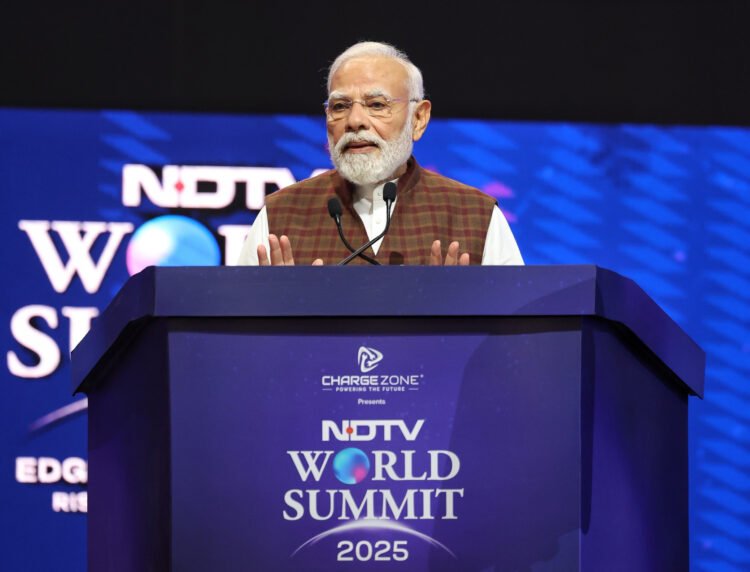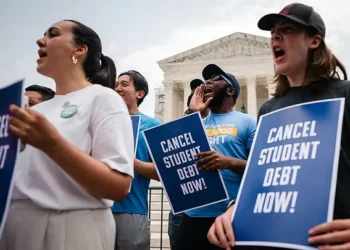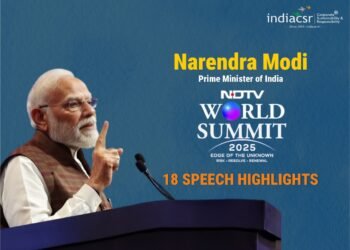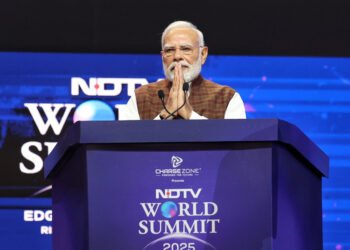- PM Modi Declares End Of “Silent India” On Terrorism
- Rishi Sunak Highlights Rise Of Multipolar World Order
- Sri Lanka And Australia Recognize India’s Regional Leadership
NEW DELHI (India CSR): Prime Minister Narendra Modi on Friday asserted that the era of a “silent India” in the face of terrorism has ended, declaring that the nation now responds decisively to those threatening its sovereignty and security. Speaking at the NDTV World Summit 2025 in New Delhi, the Prime Minister cited Operation Sindoor as a defining example of India’s strong counter-terror stance.
“Now, the self-reliant India does not stay silent. It gives a befitting response through surgical strikes, airstrikes, and Operation Sindoor,” Modi said, drawing loud applause from the audience.
The Prime Minister highlighted that modern India is not the one that waits or tolerates aggression. Through strategic operations like surgical strikes, airstrikes, and Operation Sindoor, he illustrated the evolution of India’s defense posture into one marked by decisiveness and precision. His address symbolized the political and moral confidence of a nation unafraid to confront its adversaries.
The Prime Minister’s remarks come amid heightened tensions with Pakistan following India’s cross-border military operation on May 7. The coordinated strikes—jointly carried out by the Indian Air Force and the Army—targeted terror infrastructure in Pakistan-occupied Kashmir (PoK) and Pakistan’s Punjab province. The operation, conducted with stand-off precision missiles, destroyed facilities linked to Lashkar-e-Taiba, Jaish-e-Mohammed, and Hizbul Mujahideen.
The offensive followed a deadly terror attack in Jammu and Kashmir’s Pahalgam region on April 22, which left 26 people dead. Operation Sindoor, India’s retaliatory response, neutralised more than 100 terrorists associated with Pakistan-based militant outfits.
Turning to the global economic scenario, Modi said that while much of the world continues to struggle with post-pandemic instability and geopolitical conflicts, India has demonstrated resilience and robust growth. “Soon after Covid, headlines were dominated by conflicts and wars. But India kept moving forward. In the last three years, our average growth has been 7.8 per cent. Just two days ago, merchandise export data showed India’s exports have grown by 7 per cent,” he said.
The two-day NDTV World Summit 2025 opened on Friday with participation from prominent world leaders, policymakers, and thought leaders. Alongside Modi, other notable speakers included Sri Lankan Prime Minister Harini Amarasuriya, former UK Prime Minister Rishi Sunak, and former Australian Prime Minister Tony Abbott.
Download the Full Speech of the Indian Prime Minister
***
Rishi Sunak: End Of Globalisation, Rise Of Multipolarity
Adding a complementary global perspective, former UK Prime Minister Rishi Sunak acknowledged a seismic shift in world politics. “The old global order that followed the fall of the Berlin Wall is gone,” he remarked, signaling the dawn of a new, multipolar era.
Sunak’s observation echoed the emerging consensus that nations like India are no longer peripheral players but key architects of global governance. His emphasis on strengthening domestic capabilities and acknowledging India’s growing influence reinforced the idea that the future will be defined by regional power balances rather than Western hegemony.
His remarks also hinted at a redefined trade and economic partnership between India and the United Kingdom — one shaped less by ideology and more by pragmatic cooperation in technology, defense, and innovation.
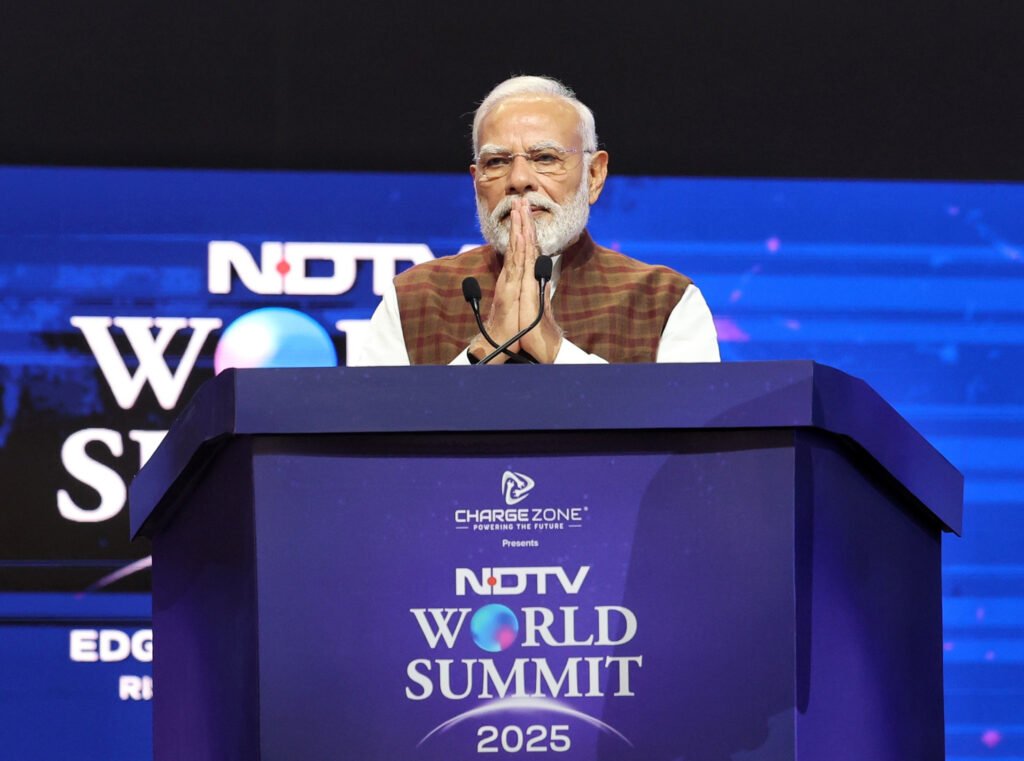
***
Sri Lanka Acknowledges India’s Regional Leadership
Sri Lankan Prime Minister Harini Amarasuriya’s address was both reflective and appreciative. She credited India’s Neighbourhood First policy for reshaping South Asia’s regional dynamics. Describing India’s support during Sri Lanka’s 2022 economic meltdown as “a lasting reminder of friendship,” Amarasuriya presented India not merely as a regional power but as a compassionate neighbor whose leadership transcends political borders.
Her words underscored how India’s diplomacy under Modi has evolved beyond strategy — into a model of humanitarian engagement that strengthens both political goodwill and regional stability. The Sri Lankan leader’s acknowledgment also reinforced India’s status as a first responder and trusted ally in South Asia.
Tony Abbott’s Realpolitik On Indo-Pacific Alliances
Former Australian Prime Minister Tony Abbott injected a dose of geopolitical realism into the summit discourse. Drawing stark contrasts between India and Pakistan, he described Pakistan as a “military dictatorship” and India as a “liberal democracy.”
Abbott’s statement carried significant weight in the context of Indo-Pacific alliances, where democratic alignment has become central to security cooperation. He admitted that the United States’ Cold War-era tilt toward Pakistan was a “strategic miscalculation,” one that modern democracies are now correcting by strengthening ties with India.
His remarks aligned with the growing recognition that India’s democratic and strategic values make it an indispensable partner in maintaining peace and stability in the Indo-Pacific — especially amid rising authoritarian challenges in the region.
***
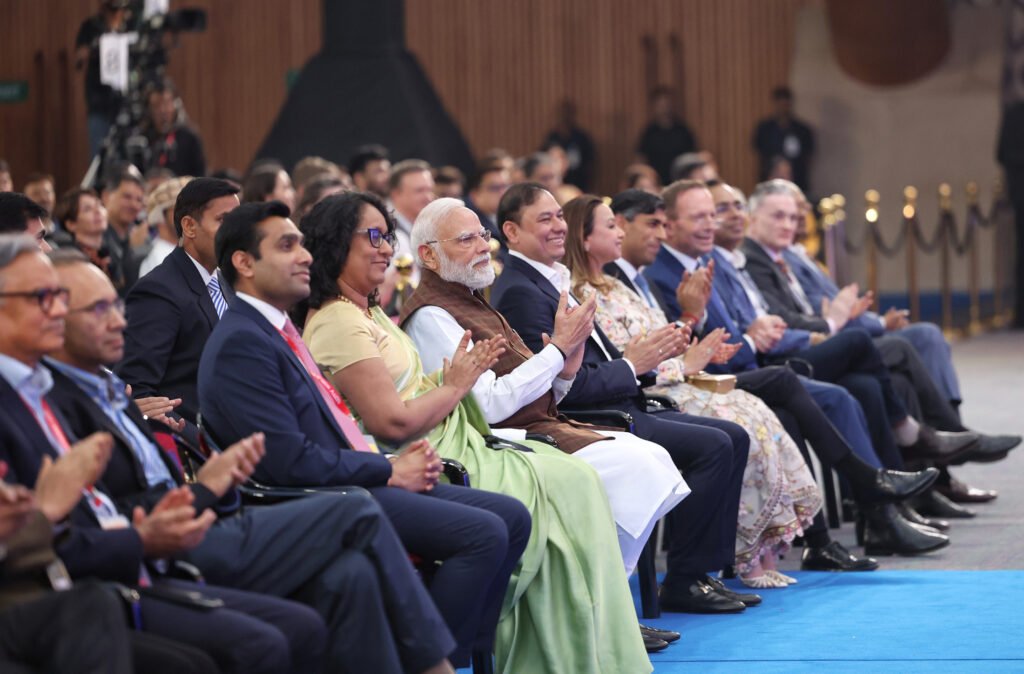
Summit Reflections: India At The Crossroads Of A New World Order
The NDTV World Summit 2025 emerged as more than just a convergence of global leaders — it was a stage where India’s evolving global identity was both articulated and affirmed.
From Modi’s defiant message on terrorism to Sunak’s reflection on multipolarity, from Amarasuriya’s gratitude to Abbott’s geopolitical clarity — the discussions painted a portrait of a world in transition.
At the heart of that transition stands India — assertive, self-reliant, and increasingly central to global politics. Whether in counter-terror operations or regional diplomacy, India’s voice is no longer one of restraint, but of responsibility and resolve.
The summit thus reflected a clear reality: the “silent India” of the past has given way to a confident nation ready to shape the new world order on its own terms.
(India CSR)

